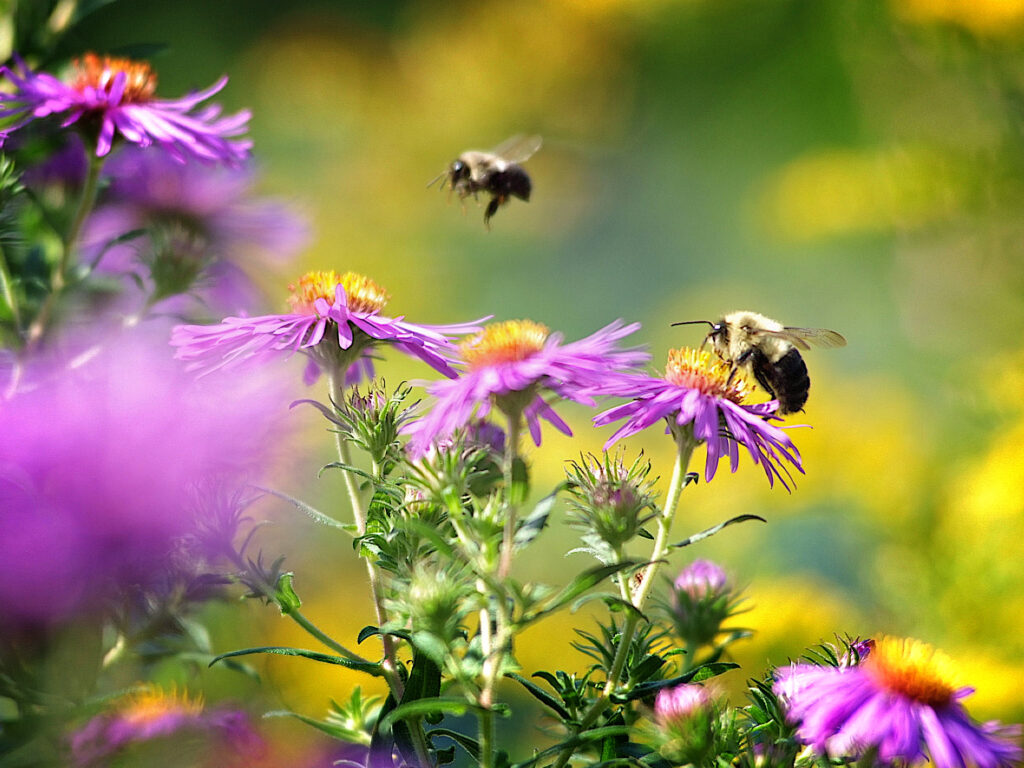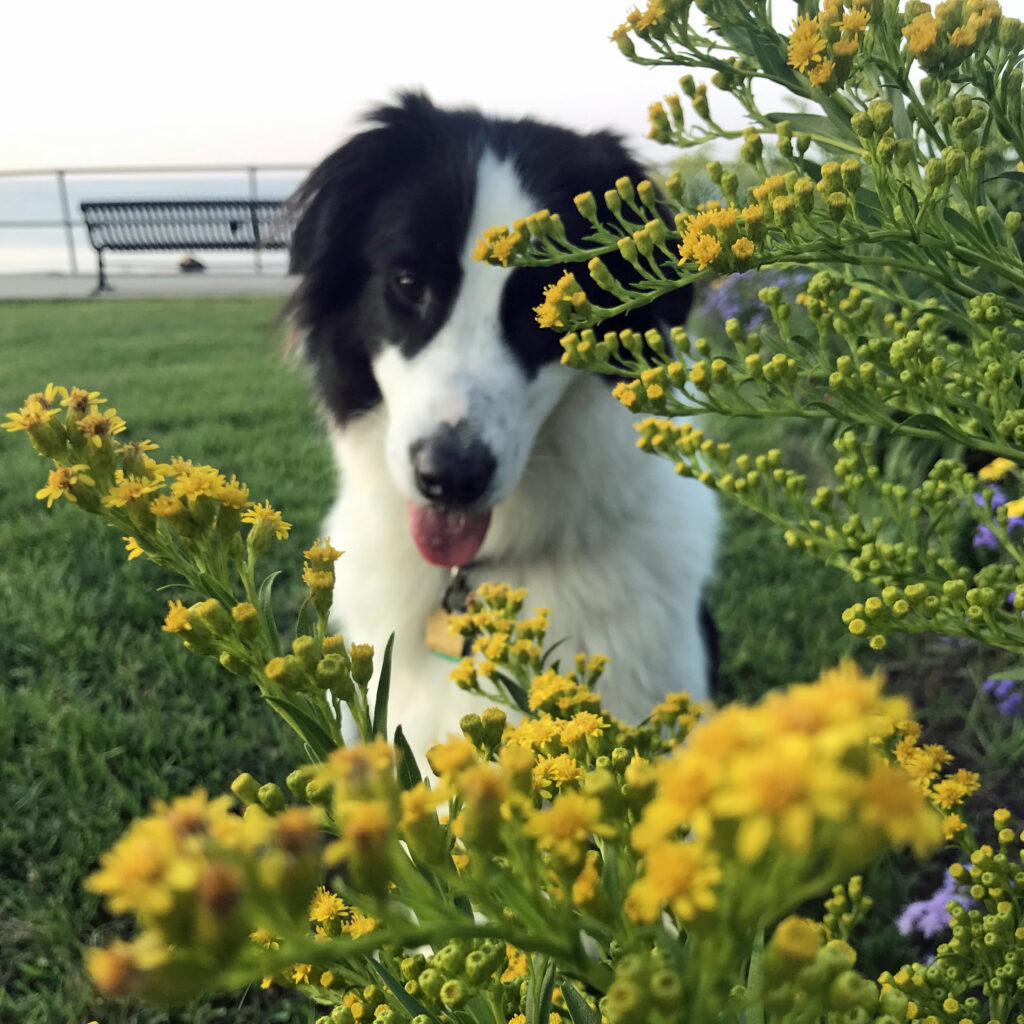Want beautiful, tough plants in your garden?
Carol visited Rockport, MA recently and shows us two tough-as-nails native plants for your garden that also provide habitat for wildlife.

Carol visited Rockport, MA recently and shows us two tough-as-nails native plants for your garden that also provide habitat for wildlife.

Native asters and goldenrod attract native bees at Foxborough Conservation Commission’s Lane Learning Center
According to the National Wildlife Federation, native asters like New England (Aster novae-angliae), New York (Symphyotrichum novi-belgii), smooth (Aster laevis), white wood (Aster divaricatus) and other woodland asters support the entire life cycles of over 110 species of butterflies and moths, so it you want a pollinator garden, these are must-haves. And the good news is that it’s ragweed rather then goldenrod that causes so many allergies in late summer, so plant away!
Goldenrods such as zig-zag (Solidago flexicaulis), showy (Solidago speciosa), seaside (Solidago sempervirens), and anise-scented (Solidago odora) species are the top champions of supporting the entire life cycles of butterflies and moths in New England, supporting 110 species in eastern MA.
More good news is that there are asters and goldenrods that do well in shady and dry conditions, so don’t worry if you’ve not much sun – so get out there and help pollinators by planting the plants they depend upon for their very existence.
Obviously they like goldenrods and asters as pictured above, but even better are native roses, like Carolina (Rosa caroliniana), Virginia (Rosa virginiana), swamp rose (Rosa palustris) and shining (Rosa nitida), plus flowering raspberry (Rubus odorous). As always, before purchasing plants, know your site’s cultural conditions – like sun/shade, soil texture and drainage – and select the best species for your conditions so your investment has the best chance of thriving.
Birds and other animals will thank you for providing habit – like food, shelter and nesting sites – that looks so satisfying to you!

My favorite things include my pup, Harper, native seaside goldenrod for pollinators, and Rockport, MA, shown here at the park above Old Garden Beach in Rockport. Sorry, Harper, the goldenrod is in focus and your are a prop. Good boy!
Thank you for reading this, and happy habitat gardening!